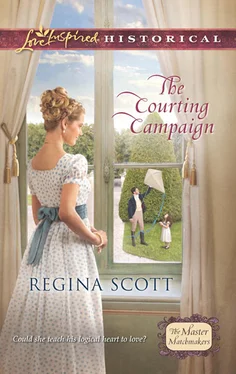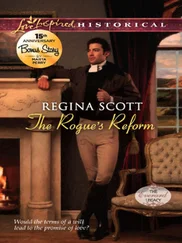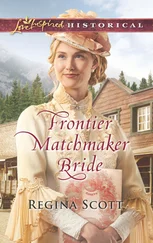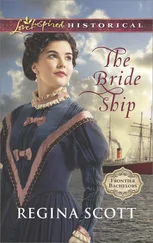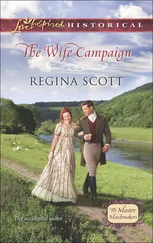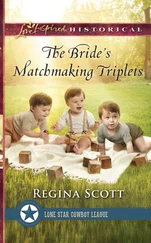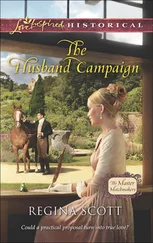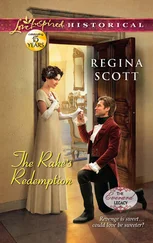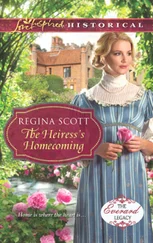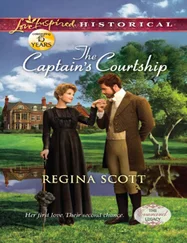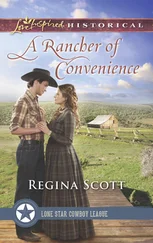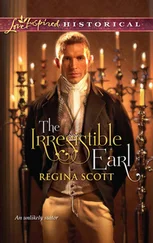“Begging your pardon, miss,” she said, with a quick curtsey to Emma, “but someone would refuse a tickle.” She glanced pointedly at Alice, who covered her mouth with both hands. The giggle still slipped out.
Emma ventured in. “Tickles before dinner? What am I to do with the pair of you?” She clucked her tongue with a smile.
Alice dropped her hands and hurried to the table, slippers skimming the rosy carpet. “Do you wish a tickle, too, Nanny?”
Now Ivy giggled before a look from Emma sent her hurrying out to help Mrs. Jennings finish the Sunday dinner.
“Not at the moment,” Emma assured her charge. “And I’m guessing the rest of the household is not up to laughter either on a quiet Sunday evening.”
Alice climbed up into her chair and waited for Emma to push her up to the table. “I didn’t mean to make so much noise,” she said, face scrunching. “I know I shouldn’t bother Auntie or Papa.”
All at once the ideas that had been germinating in Emma’s mind sprouted into bloom. Her smile grew.
“Not at all, Alice,” she said, pushing the girl up to the table and going to her own seat to wait for the dinner tray to arrive. “I believe your father needs something to wake him up. And I know just how we can go about it.”
* * *
The next morning, Nick scowled at the scrap of wool sitting on his worktable. Two days ago the stuff had burst into flame immediately; his laboratory still gave off the grit of charcoal from the smoke even though he’d spent Sunday afternoon airing the place and setting up his next experiment. Today, under a different chemical treatment, the material would not so much as smolder. That didn’t bode well for success.
It had sounded like a relatively simple problem to solve. Coal miners required light to do their jobs deep underground. Coal mines gave off firedamp, a noxious gas that appeared to be a form of the swamp gases Volta had studied. Combine a flame with a patch of the gas, and the resulting explosion could kill dozens. The Fatfield Mine in Durham had lost thirty-two men and boys just two years ago after their candles ignited firedamp.
Still, the solution eluded many. Dr. William Clanny had developed a method of using water to force the air into a lamp, protecting the flame from the gas. While ingenious, the device was impractical to carry into the mines. Sir Humphry Davy, the chemist, was approaching the matter from a heating perspective. An enginewright named George Stephenson thought burnt air was the key to separating the flame from the firedamp.
Nick had been working with a team of natural philosophers led by Samuel Fredericks to consider the properties of the materials that could compose a lamp. They had thought they’d come across a likely combination of candidates, but their first attempt to test the lamp had resulted in the deaths of three men and a boy a little older than Alice.
The muscles in his hand were tightening; he shook them out. Obviously this composition would not meet his needs. He required something that would burn in the presence of oxygen but not firedamp, not the other way around. He’d have to start over.
He rocked back on his stool, took a deep breath. He was certain the secret lay in the composition of the lamp’s wick. He’d already had a glassblower create the appropriate chimney to partially isolate the wick from the gas and the blacksmith create the brass housing for the fuel. He’d tried wool, cotton and linen and various combinations of fuel, to no avail. One attempt was too flammable. Another, like this, wasn’t flammable enough. There was no easy in between.
Which somehow reminded him of his life of late.
Outside, he heard a noise. More like a bump and shuffle, really. Very likely the gardener was attempting to replace the shrub Nick had withered when he’d dumped a batch of chemicals after he’d first moved to the Grange. He’d learned to be more cautious in his disposal habits. He didn’t want Alice to accidentally come in contact with the stuff.
Perhaps he ought to try silk next. Kressley had recently proposed its use in commercial lamps. But he wasn’t sure it was practical by itself. Perhaps coated with some chemical to moderate the flammability.
The noise outside was rising in volume now, and he thought he made out words. Was that someone singing? He could place neither the tune nor the key.
Nick shook his head to clear his mind. It didn’t matter what was happening outside. He had work to do. His family’s income came in large part from the leasings of the mine to the east of the Grange. He felt as if he owed it to those men personally to find a safer way for them to work.
He still remembered the first time his father had taken him to the mine, on a gloomy day when Nick was eight. Nick had been about to leave for Eton, and his father seemed to see Nick’s imminent departure as reason to spend time together. Certainly Nick could find no other logical hypothesis for why his father had suddenly remembered his existence.
They’d driven to the mine in the gig, his father at the reins, but obviously determined to show his knowledge of the place. He’d pointed out the shadowed entrances, the stiff metal outbuildings, the men and boys laboring under the weight and darkness. His father’s face had glowed with pride as he described the prosperity, the accomplishment.
Nick had been more interested in how the mine worked. He’d prevailed upon his father to allow him to be lowered in one of the baskets into the pit. He hadn’t been afraid, even as daylight disappeared and blackness swallowed him.
Open-flame lamps produced more light at the bottom, where scarred walls told of past discoveries. Sitting on the floor had been a boy of six, face grimy, clothes grimier. One small fist enclosed the handle of a wooden door built into the wall.
“What are you doing?” Nick asked as he stepped from the basket onto the uneven floor.
“Manning the wind-door,” the boy replied with pride. “We open and close the doors to keep the air flowing.” As if to prove it, he heaved on the handle, and air rushed past Nick, setting the basket beside him to swaying.
That grimy face was the one he saw when he thought about the need for his safety lamp.
Something hit the door of his laboratory, hard. The memory faded. Enough of that nonsense. Each day down in those mines, hundreds of men and boys risked their lives. While it was not entirely his fault a replacement had not been found, he could not forget that a mistake of his had cost lives as well as his status as a natural philosopher. He would not rest until...
“What on earth is all that noise?” he demanded, jumping off his stool. He strode to the door and jerked it open.
Alice gazed up at him, little fingers barely grasping a battledore. The wooden racket was nearly as long as she was. Her eyes seemed disproportionately large for her face, but one look at him and they brightened. “Papa!”
“Alice,” he returned, bemused.
“Good day, Sir Nicholas,” Miss Pyrmont called from a short distance away. She swung her battledore up onto the shoulder of her brown wool gown. He seemed to remember the game that required the rackets also involved a shuttlecock that was cork at one end and feathers at the other. Hardly sufficient to make noise. He struggled to develop a hypothesis about the source of the thuds against his door.
“Miss Pyrmont,” he greeted her. “Why are you here?”
She cocked her head as she strolled closer. She wore no bonnet. Perhaps they were not required for a nanny as they seemed to be for other ladies. Certainly Charlotte and Ann had never left the house without one. Either way, the sunlight blazed against her pale hair.
“We’re playing a game,” she explained with a smile as she approached him. “I would think that would be obvious to a gentleman given to observation.”
Читать дальше
